Game 7 reaction: Sure feels like these St. Louis Blues can't stop, won't stop
If we've learned one thing about these St. Louis Blues, it's that they leave nothing to chance.
Sitting 31st in a 31-team league on Jan. 2, St. Louis didn't suddenly rise from the ashes in the last week of the regular season and sneak into the playoffs. No, the Blues roared up the standings with chests puffed to finish in a three-way tie for 10th overall and third in the Central Division.
A month later, head coach Craig Berube and Co. continue to amaze. Following a dramatic double-overtime Game 7 win over the Dallas Stars on Tuesday night, St. Louis has earned the right to face the winner of Wednesday's series-deciding matchup between San Jose and Colorado in the Western Conference Final.
How did this happen? Let's explore some key factors that powered the Blues to that 2-1 Game 7 victory, and their playoff run in general.
Thomas found clutch gear
After 86 minutes of hockey on Tuesday, Patrick Maroon took center stage by potting the game-winning goal. The tally simultaneously ended Dallas' season and the (totally warranted) drool-fest over Ben Bishop's astounding 52-save performance.
Suddenly, the Blues, not Bishop's Stars, were advancing. Local boy Maroon was the hero, and his teary-eyed young son was there to witness it all. What a moment.
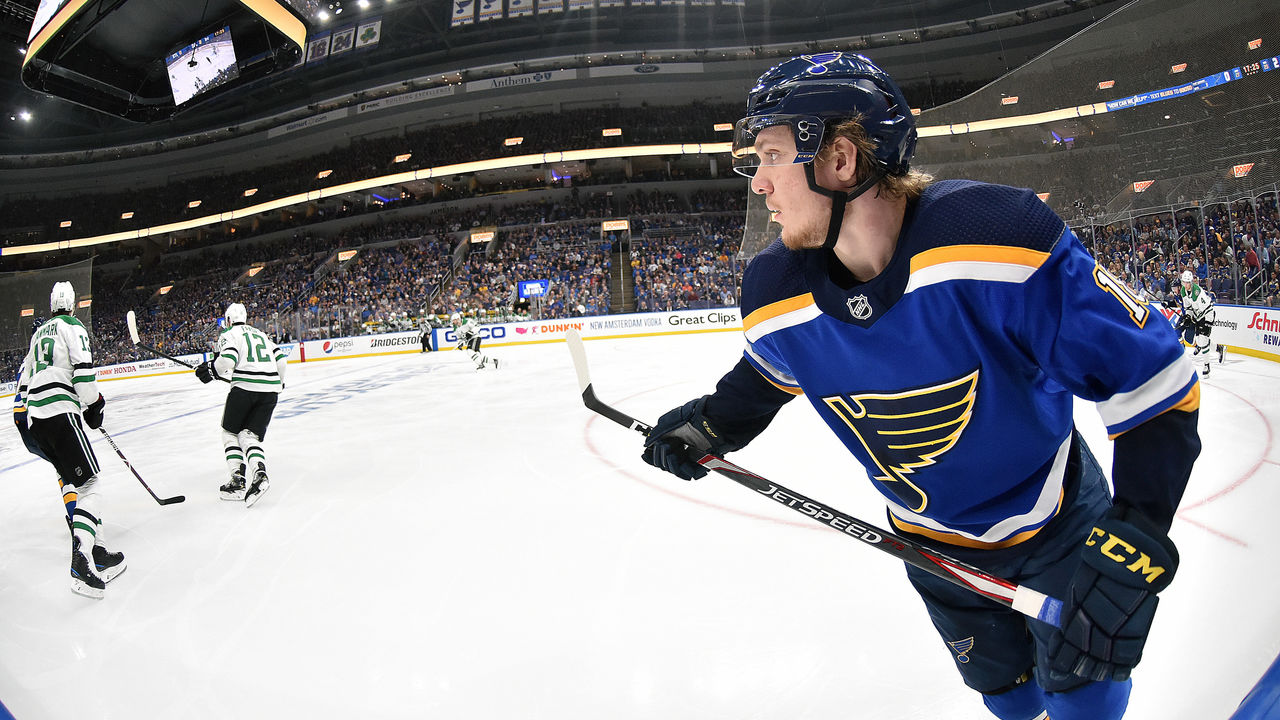
If you take that emotional connection out of the equation, however, it was actually Maroon's linemate - rookie Robert Thomas - who drove the bus for St. Louis in Game 7.
The 19-year-old was a catalyst on both goals, recording a pair of assists. He fed the point ahead of Vince Dunn's opening goal, and on the winning sequence created chaos around Bishop by firing the puck off the post. All told, the cerebral winger made his presence known in all three zones over a career-high 22:52 of ice time.
With Thomas on the ice at five-on-five, the Blues controlled 71 percent of the shot attempts, 63 percent of the shots on goal, and 67 percent of the scoring chances, according to Natural Stat Trick. In the biggest game of his career, the teenager from Aurora, Ontario, looked mega-comfortable alongside veterans Maroon, 31, and center Tyler Bozak, 33.
Funnily enough, none of them were on last year's roster. A rookie and two free agents setting the tone in Game 7? Bravo, Blues general manager Doug Armstrong.
Binnington outlasted Bishop
Heading into Tuesday's tilt, Bishop had more assists (2) than goals against (0) in two Game 7 appearances. An excellent performer over a 49-game playoff career, he's developed a sterling reputation.
It was no surprise, then, that the Vezina Trophy finalist stood on his head against a St. Louis squad that threw everything but the kitchen sink at him. Bishop faced 54 shots, 24 more than counterpart Jordan Binnington. The contrast hit a peak in the second period when Dallas managed one shot to St. Louis' 18.
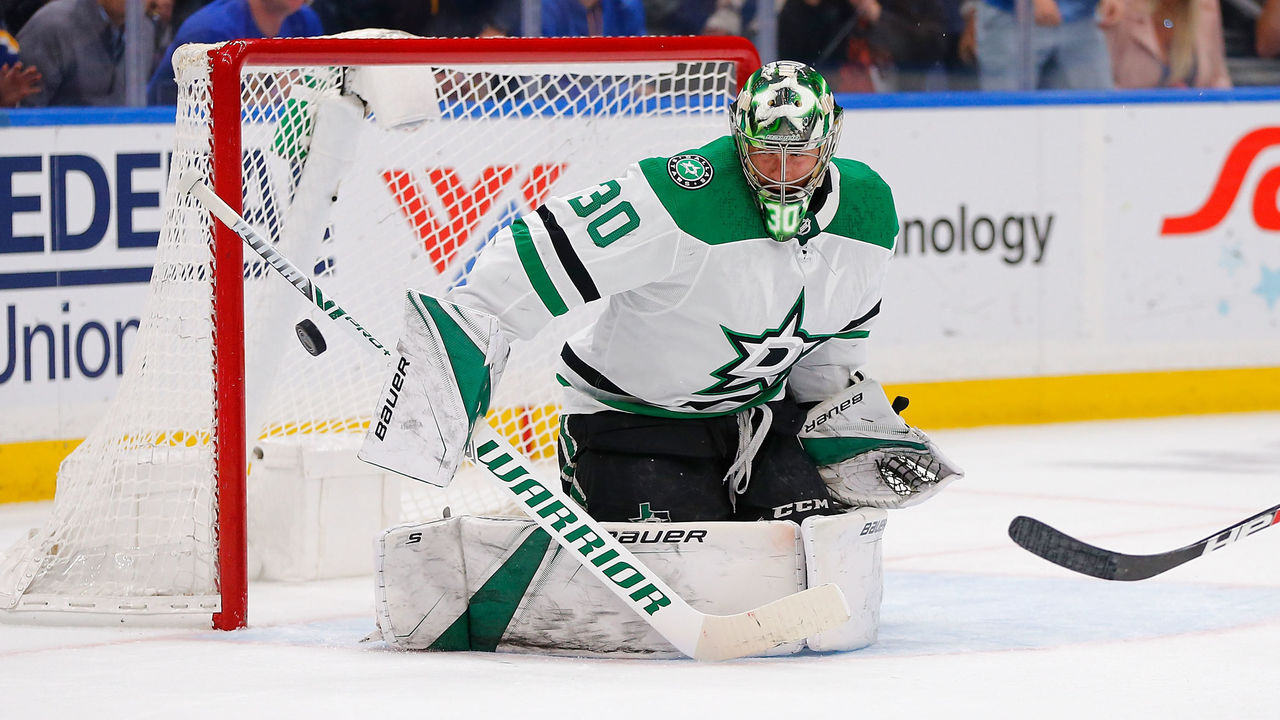
Anybody with half a brain would anoint Bishop the game's MVP, especially considering the shot-attempt discrepancy - 103-57 in favor of St. Louis. Bishop had to react to a potential shot on goal at least 103 times. That kind of workload will wear any goalie down, and Bishop stood his ground.
Ultimately, though, the fresher goalie got the last laugh. The record shows a 'W' beside Binnington's name. The series was partly a goaltending battle and, unfortunately for him, Bishop's teammates let him down in Game 7. The Stars were chasing the play for the bulk of regulation and it seemed only a matter of time before the Blues solved the towering 'tender in overtime.
Mind you, Binnington does deserve a healthy dose of praise. The rookie used some fine puckhandling to help break the puck out of St. Louis' zone countless times. He also faced a higher quality of shots than his Stars counterpart and didn't crack; Dallas' lone goal featured a bad bounce off a referee.
MoneyPuck.com calculates an advanced statistic called expected goals, which estimates the number of goals that should go in on an average NHL goalie. The Stars held the slight edge in this department in Game 7, earning the higher expected goals total - 3.3 to 3.1 - because they boasted higher shot quality.
The graphics below, courtesy of MoneyPuck, illustrate the respective opportunities Dallas and St. Louis generated Tuesday:
Stars' scoring chances in Game 7
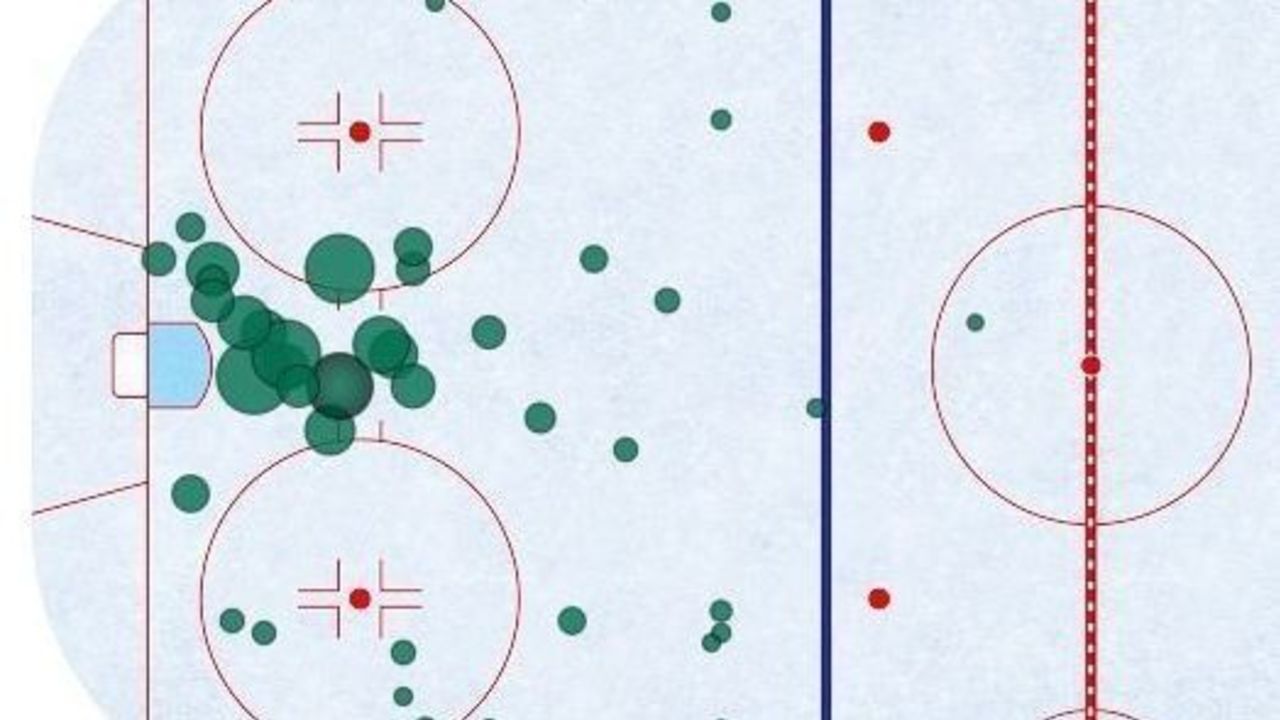
Blues' scoring chances in Game 7
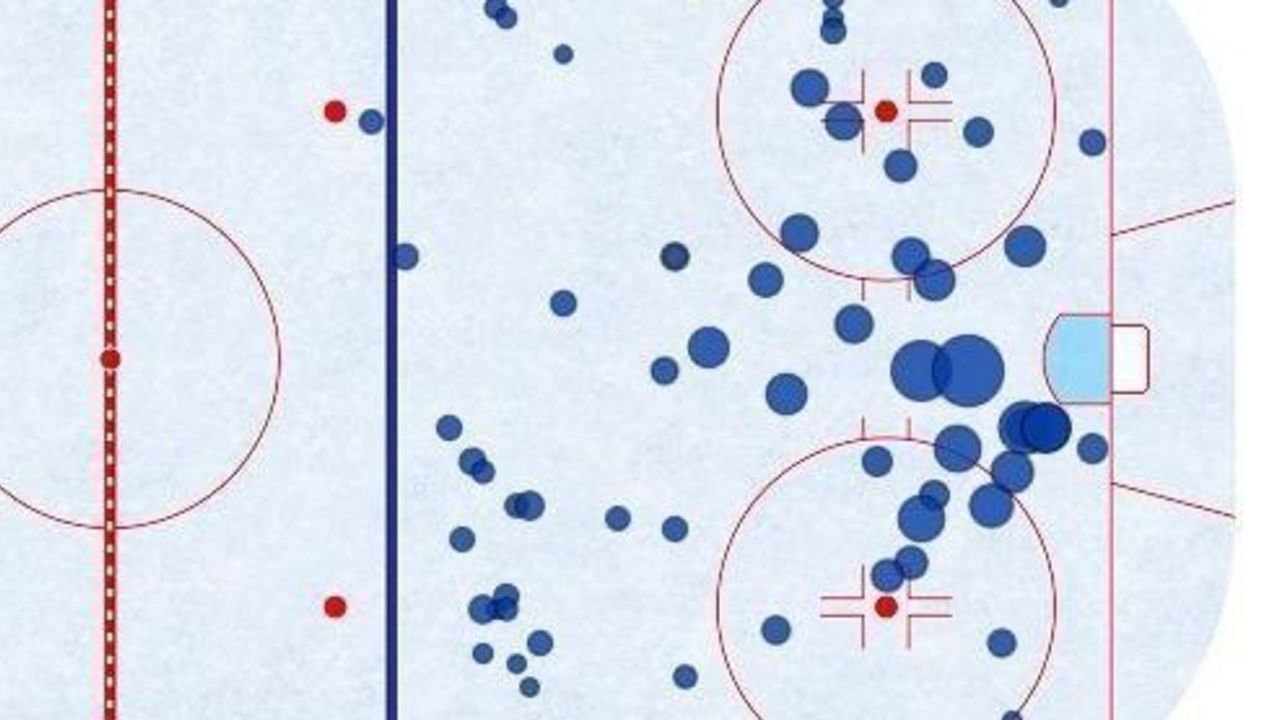
There's a huge clumping of Stars chances right in Binnington's face. Bishop, on the other hand, stared down shots from all over the zone.
Clearly, Binnington wasn't as busy as Bishop, but he certainly was a calming influence for the Blues - especially in overtime - and an underrated reason for his club's win.
Everybody rowed in the right direction
The Blues were in complete control of Game 7.
They broke the puck out of their zone with ease over and over again. They limited the effectiveness of Dallas' difference-makers, namely Tyler Seguin, Jamie Benn, Alexander Radulov, and Miro Heiskanen. They didn't take a single penalty. They stuck to their game plan, even though goals were hard to come by. And they received valuable contributions from a slew of players.
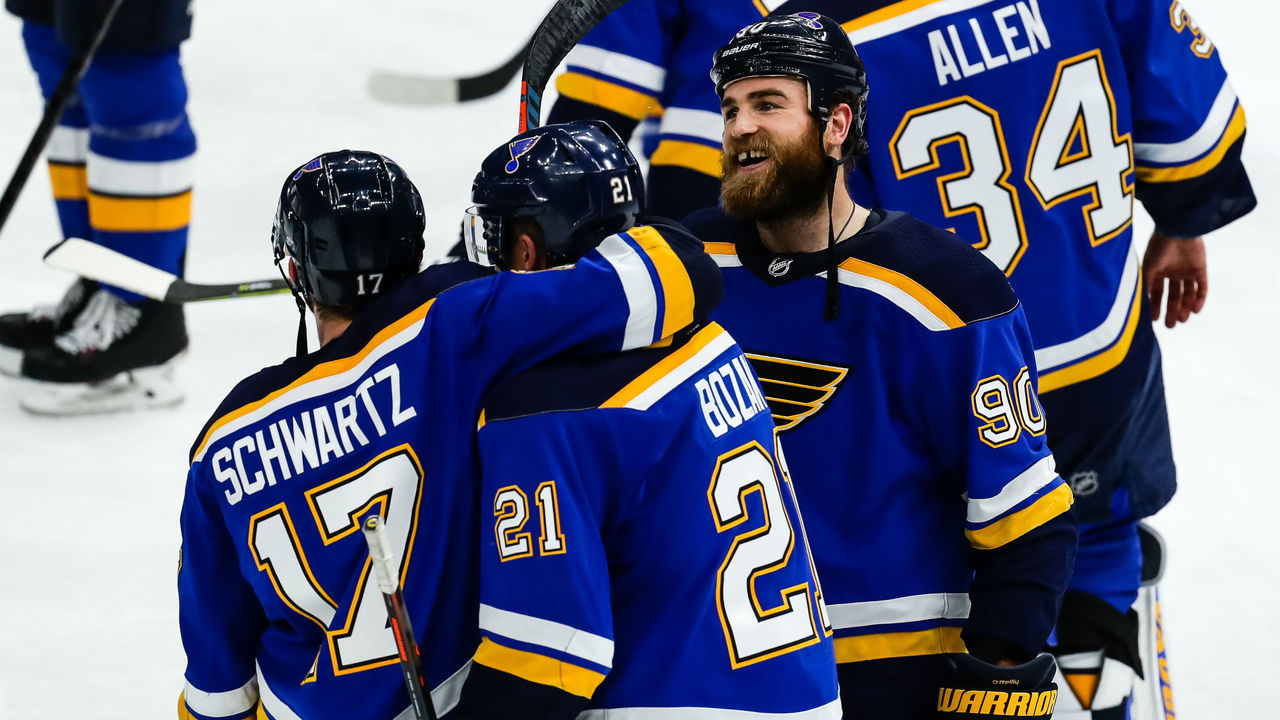
Similar to what's going on with the Carolina Hurricanes, there's a top-to-bottom buy-in to what Berube - who began the season as an associate coach before assuming the head role on an interim basis in November - is preaching. There are few weak links night to night. The all-for-one, one-for-all mentality has manifested itself on a number of occasions through two rounds, and Tuesday was no exception.
On defense, for instance, Dunn had a hell of a game. The smooth-skating, 22-year-old blue-liner scored his first career playoff goal and wreaked havoc in the neutral zone shift after shift. Alex Pietrangelo and Colton Parayko - the team's cornerstones on the back end - asserted their alpha-male playing styles. Joel Edmundson, Jay Bouwmeester, and Carl Gunnarsson were all solid.
From the defense corps to Thomas and the bulk of the forward group to Binnington between the pipes, the Blues came to play Tuesday. They were the better team and have been rewarded with a trip to the conference final.
By now, with this 31st-to-final-four trajectory, it feels like the St. Louis freight train is virtually unstoppable.
John Matisz is theScore's national hockey writer.
HEADLINES
- Team USA still finding its footing despite starting Olympics with 2 wins
- USA holds off Denmark to win nervy round-robin clash
- Watch: Denmark scores from center ice on USA's Swayman
- Slovakia takes Group B after late goal in loss to Sweden, Finland's win
- Report: Fiala to have season-ending surgery after Olympic injury